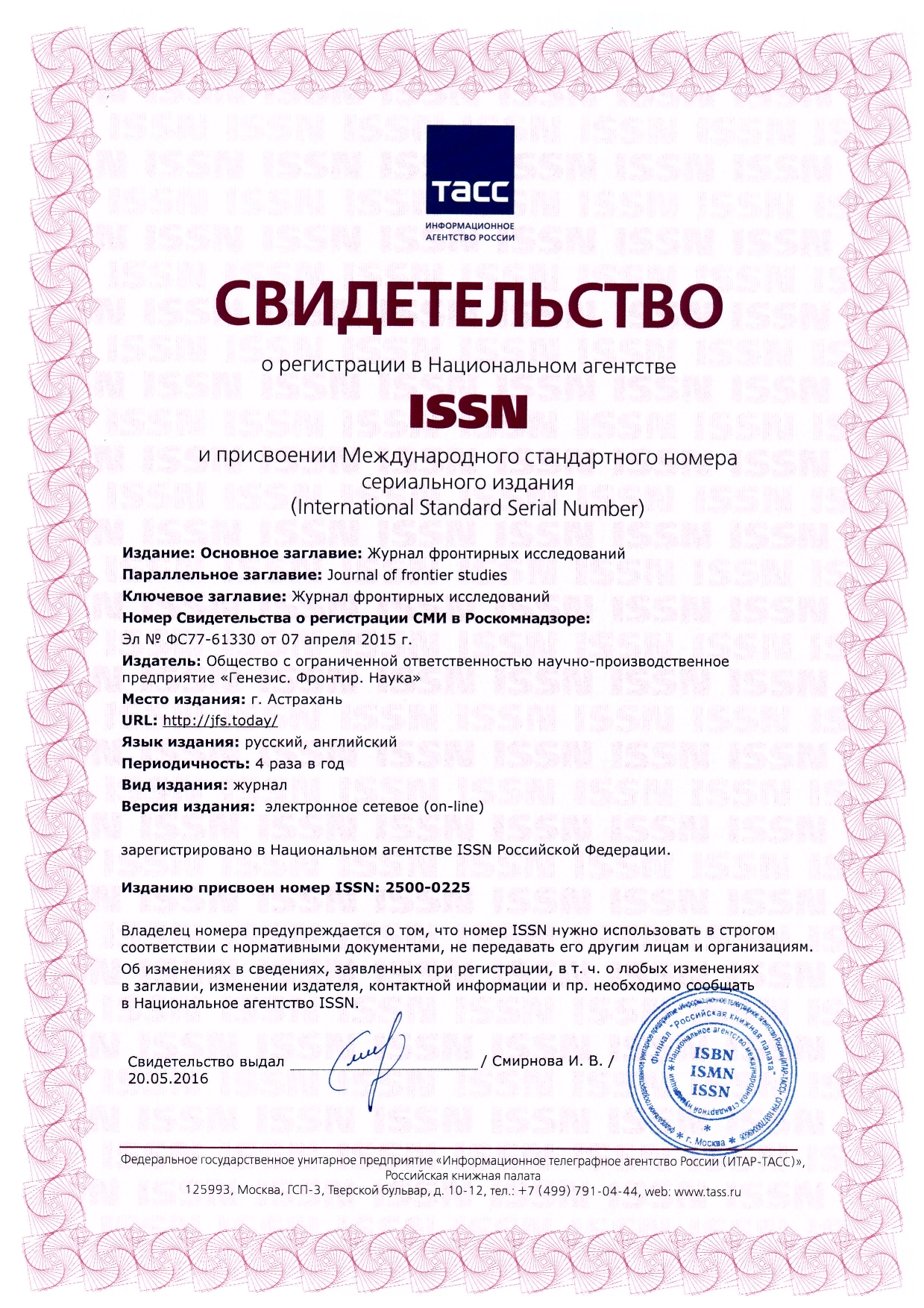Journal of Frontier Studies is a periodic academic e-journal without printed forms (since 2016). The journal publishes scholarly articles, reviews, information resources, expeditions’ reports, conferences and other scientific materials.
Certificate of registration issued by Roskomnadzor: Эл № ФС77-61330 from 07.04.2015
ISSN: 2500-0225
In case you have any questions about cooperation please write an email the following address: editorialboard.jsf@jfs.today or editorialboard.jsf@gmail.com
Phone: +7 (988) 068-63-72
We publish four issues in a year.
The working languages of the Journal are English and Russian.
The Journal is devoted to topical issues in the field of Frontier theory, Borders and Borderlands, problems of intercultural communication in contact zones, as well as the questions of functioning of Frontier tropes in modern mass culture.
Aim and Scope
Our goal is to create a virtual platform for exchange of views and discussions in the field of Frontier studies. With this goal in mind, we aim to ensure that our online publication performs important scientific functions – communication and information - that will not only accumulate new developments in this field, but will also serve as a basis for new discoveries and insights.
The Journal advocates the principles of dialogue of cultures and elimination of conditions for possible conflicts of civilizations. It adheres to the principles of the philosophy of non-violence, cultural and religious tolerance. The editorial staff aims to remove language barriers and respect the boundaries of the national culture of each nation living on our small planet – Earth.
The journal was included in the top list of peer-reviewed scientific publications, which should publish the main scientific results of dissertations for the degree of candidate of science, for the degree of doctor of science in the following specialties:
- 5.6.1. Russian history;
- 5.6.2. General history;
- 5.6.4. Ethnology, Anthropology, and Ethnography;
The journal assigns Crossref DOIs to all articles.
The main branches of science within which materials can be published in this publication are:
History;
Theory and history of culture;
Philosophy;
Literature.
But this does not mean at all that articles and other materials of the authors written in other branches of knowledge will be categorically rejected. We welcome articles on Frontier problems written from the perspective of a wide variety of Sciences or at the intersection of several branches, since this approach, in our opinion, may be the most effective and allows us to look at known problems from a new point of view. All materials submitted to the editors will be carefully selected and sent for double-blind reviews.
Any unscientific or not based on facts article will be rejected by the editors. We do not accept works that Express disrespect for other peoples or contain politically incorrect language.
All articles are published FREE, but the fee is not paid to the authors.
The Journal charges a fee - Policy on Charges for Publication and Processing of Manuscripts
The Author Self-Archiving Policy
This journal permits and encourages authors to post items submitted to the journal on personal websites or institutional repositories both prior to and after publication, while providing bibliographic details that credit, if applicable, its publication in this journal.
The list of currently relevant sections:
The Russian Frontier;
The World Frontier;
Borders and Transborders;
The People of the Frontier;
Frontier in Mass Media;
General Questions of Frontier Theory;
Frontier Literature;
Frontier in Comparative Perspective;
Intercultural Communication on the Frontier;
Defining Ourselves and the Other;
Critics & Reviews;
Miscellaneous.

The journal is indexed in:

.JPG)